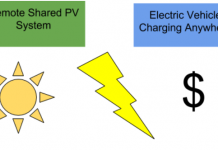One of the companies I have followed for some time is Westport Innovations, Inc., (TSX:WPT or WPIVF.PK) out of Vancouver. The technology and product suite allows large diesel trucks to run standard diesels on a 95% natural gas mix, enabling fuel switching as well as significantly improved NOx and PM, as well as CO2 emissions. The company’s rapid expansions date from a late 1990s joint venture with Cummins (NYSE:CMI), and Westport has led this market sector since then. I had the opportunity at the recent Greenvest 2007 Conference I chaired in San Francisco to hear the talk of my friend Dr. Mike Gallagher, President & COO of Westport, and asked him to share a few thoughts for Cleantech Blog based on his conference presentation. A few quick quotes from their website on the technology (you’ll see why I like it so much): “Westport™ HPDI (High Pressure Direct Injection) natural gas engines on the road are producing approximately 50% less nitrogen oxides (NOx), 80% less particulate matter (PM), and 20-25% less carbon dioxide (CO2) emissions than equivalent diesel engines.” – These are the regular diesels running on 95% natural gas. Westport has also been developing a Compressed Natural Gas Direct Ignition technology that basically similarly enables a straight natural gas engine to run direct injection like a diesel. The benefits include: “- near-zero emissions of particulate matter – 20% less greenhouse gas emissions (mainly carbon dioxide) than equivalent diesel engines – 25% increased fuel efficiency over current spark-ignited natural gas engines” Mike, before we go into your thoughts on Westport, let me lay out some of your background in energy engineering. Mike was previously Senior Vice-President, Americas, for Fluor Corp, and held executive officer positions with the Bechtel Group in San Francisco and London-based Kvaerner Group. He also has PhD from Stanford in Mechanical-Nuclear Engineering. So Mike, thanks for the time today. Mike, I know Westport makes products to run diesel engines on natural gas – how exactly does this work? Westport’s LNG System for Heavy-Duty trucks uses a small amount of diesel pilot fuel for robust ignition and then allows the truck engine – we’ve based our technology on the Cummins ISX diesel engine platform – to operate using approximately 95% natural gas for high duty cycle applications. The combustion approach uses a high pressure direction injection of natural gas into the diesel combustion chamber. Can you tell us about the greenhouse gas impact of your products? That’s such a hot topic these days. Emissions regulations are the norm now, particularly in California where we are actively pursuing opportunities for the use of our heavy-duty product. The Westport LNG system truck produces 15-20% less greenhouse gas emissions, compared to an equivalent diesel engine. Our joint venture company, Cummins Westport Inc., offers mid-range products for medium-duty truck and bus applications. CWI’s advanced ISL G engine produces 7-13% less greenhouse gas than the equivalent diesel. As you just alluded to, and for those who haven’t followed the company, Westport has a major joint venture with engine company Cummins. How does this arrangement work and what’s in it for Westport? Cummins Westport Inc., or CWI as we call it, is a 50:50 joint venture between Westport and Cummins Inc. The JV company is headquartered right here in Vancouver with us, it has a dedicated management team and a dedicated Board of directors. Profits (and losses) are shared equally by the two parent companies. CWI Cummins Westport Inc., a joint venture of Cummins Inc. (NYSE:CMI) and Westport Innovations Inc. (TSX:WPT), manufactures and sells the world’s widest range of low-emissions alternative fuel engines for commercial transportation applications such as trucks and buses. Cummins is a global power leader in engines, electrical power generation systems and related technologies. Westport Innovations is the leading developer of technologies that allow engines to operate on clean-burning fuels such as natural gas, hydrogen, and hydrogen-enriched natural gas (HCNG). Revenues grew approximately 40% from 2006 to 2007, to $60 million Canadian, what were the major drivers – and is that growth expected to continue? Where should investors expect the growth from? The 39% increase in annual revenues was driven by increased CWI engine shipments (up 50%) and the delivery of our first Westport LNG systems for heavy-duty trucks. Product sales growth which we measure in Canadian dollars was actually offset by a 5% decrease in the US dollar exchange rate. In US dollar terms, revenue growth was 44%. Growth for the next couple of years is expected both from CWI global sales growth around the launch of its new ISL G, and from sales of Westport’s new LNG systems for heavy duty trucks. And the company turned a profit for, I believe, the first quarter ever in this last quarter. Does this mean Westport has turned the corner? The company has a fairly large retained deficit – and I know investors have been looking for profits to begin erasing it. We are pleased about this last quarter’s results for sure. We have a solid history with CWI and a new HD product now and the markets are responding. The profitability for this recent quarter was driven by a number of fortuitous events that occurred during the quarter on a one time basis. So we will continue to push for improved profitability on a recurring basis. Perseus, one of your major shareholders (who has had two seats on the board) recently sold a large amount ($50 million worth) of shares. What was the story there? Didn’t Perseus loan money to the company just last year? Should existing or prospective investors be worried? No, certainly no cause for worry, quite the reverse actually. In fact, the sale erased planned interest payments by Westport to Perseus which is a positive for us, and Perseus elected to capitalize on a a very attractive financial opportunity available to them based on our significant share price increase in recent months. The stock price has tripled in the last year – what were the drivers and are you worried the run up was too steep? It’s always hard to know exactly what is going on out there in the marketplace, but we think the market has responded primarily to two things: our CWI business is demonstrating strong and growing profitability, and our heavy duty LNG truck business has launched with some early sales and big opportunities at the Port of LA and others. We think we are now being valued more broadly for our expertise, we are meeting expectations, and the regulatory system is catching up with our technologies, opening the door for more sales. CWI has an engine offering available now that is certified to 2010 emissions standards – that’s 3 years ahead of schedule! And Westport is positioned to provide LNG systems in trucks in California now, where they have approved a five year Clean Air Action Plan at the Ports of Los Angeles and Long Beach to replace up to 5,300 older diesel trucks with LNG trucks in five years. Do you have any plans to list on Nasdaq in the future to make it easier for US investors to buy in? We are always looking at listing alternatives and have expanded our communications with US institutions and investors. But we don’t have any immediate plans to do a US listing. You personally came to Westport from big corporate engineering – what had attracted you to the company? That’s true, I had spent 25 years and grew into senior executive positions with the pre-eminent engineering and project management companies in the world- well known names like the Bechtel Group and the Fluor Corporation. Within those companies
though I had dedicated a fair piece of my career to development of alternative energy technologies- particularly alternatives to oil- and to environmental cleanup technologies. And to the entrepreneurial creation and growth of new businesses. And of course I had my Stanford and MIT engineering and technology roots to draw from. So when the Westport opportunity came along almost five years ago, I felt it was a great way to take everything I had learned and apply it to a fast-growing technology company. A place where I could work with some of the brightest young talent around to transform Westport from an R&D company to a full commercial company, making a serious contribution to solving some of the world’s oil, energy, and environmental challenges. If you had to give an investor three reasons to like Westport – what would you pick? Real and growing sales, short term commercialization opportunities, and a technology right in the wheelhouse of current world needs around oil, energy, environment, and climate change. For more information, you can visit the Westport website. Neal Dikeman is a founding partner at Jane Capital Partners LLC, a boutique merchant bank advising strategic investors and startups in cleantech. He is founding contributor of Cleantech Blog, a Contributing Author for Inside Greentech, and a Contributing Editor to Alt Energy Stocks.








